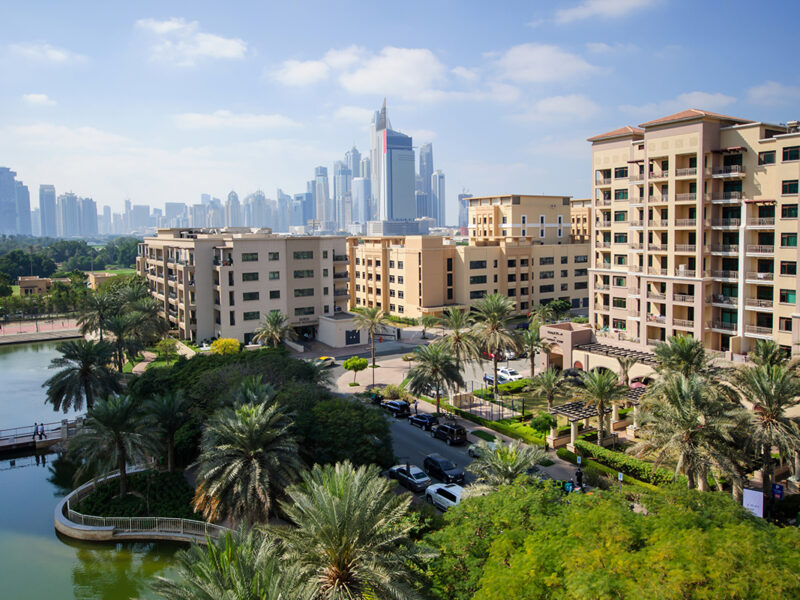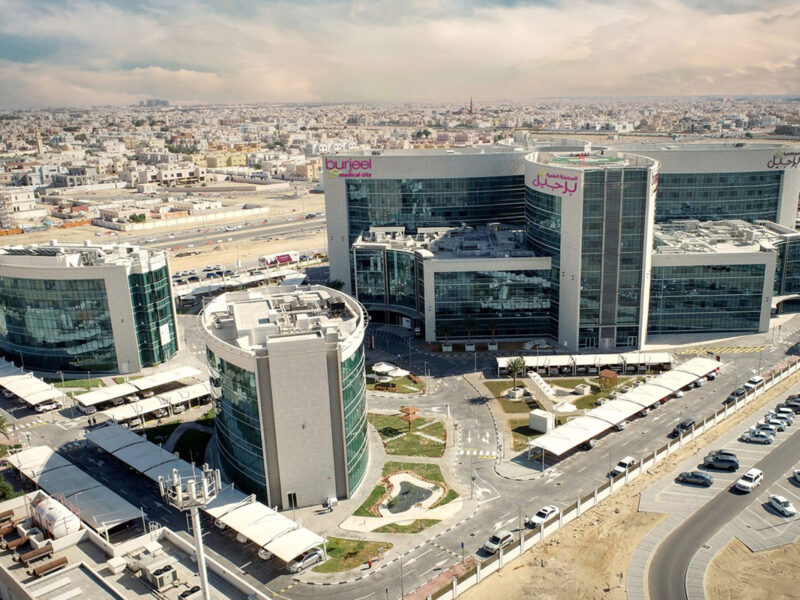The countries of the GCC spend roughly $130bn a year on defence, far more than any other states as a percentage of gross domestic product (GDP). Geopolitical uncertainties in the region mean that high spending is likely to continue.
Yet because the region lacks defence manufacturing capabilities, most of that money goes to foreign companies and contractors. GCC governments remain customers for defence technology, rather than its designers and developers.
There are problems with this situation. Buying from a range of foreign contractors gives militaries in the region an unnecessarily high number of different weapons and systems. GCC militaries must depend on foreign governments for technology upgrades, maintenance and training.
The resulting outflow of capital is a missed opportunity to build up local defence suppliers and capabilities, since there is a high dependence on foreign labour and experience.
Size is not the issue. Countries with smaller defence budgets, including Italy, Pakistan and Turkey, have built substantial manufacturing capabilities for military weapons and systems and now export these products to other countries.
Instead of simply spending more on defence, governments must spend intelligently, by investing to build a local manufacturing capability. In doing so, governments will provide for their own defence needs and generate economic dividends, in the form of a stronger local defence manufacturing base, better jobs for nationals and more robust innovation.
Three steps are crucial to build up a local defence industry.
First, GCC governments need to coordinate and consolidate defence purchases, rather than buying weapons and systems individually as they currently do. Consider that GCC countries currently use more than 25 types of artillery, 32 types and variants of helicopters, and 53 different kinds of patrol boats. This kind of fragmentation benefits suppliers, not customers. It leads to complex supply chains and maintenance and complicates training.
Just consider the logistics required to keep 32 types of helicopters flying or the training needed for pilots. Worse, having so many different platforms and systems means that they often cannot communicate or operate with each other on the battlefield.
Given that GCC militaries work together, they should also buy together, so that they use the same systems. That would make armed forces more effective and simplify logistics and maintenance.
Second, regional contractors should get better at working directly with militaries to ensure that planes, weapons and systems are available when they are needed. Currently, many local companies hold basic maintenance and repair contracts with armed forces in the region.
Yet the terms of those contracts are changing. Rather than simply buying individual parts and services, militaries are now buying operational time for military platforms, vehicles and systems—freeing military personnel to focus on operational tasks.
This is a different way of working, one that transfers risk from militaries to local suppliers. As a result, suppliers will need to become more innovative and proactive, working directly with governments through long-term partnerships aimed at developing smart maintenance and repair solutions.
The goal is not to keep military platforms and vehicles operating at any cost. Rather, companies need to develop solutions that are economically viable for the military and the industry partner, and that develop the broader economy’s base of knowledge, skills and ability.
Third, governments need to create the right environment, by investing in their national defence industries and encouraging direct collaboration among such stakeholders as contractors, ministries, militaries, original equipment manufacturers and suppliers.
Some policymakers may feel that this support should not be needed, yet it is for defence companies in the GCC and around the world. Over the last 25 years, the global defence market has become consolidated and reduced to a handful of global players. Most contractors are supported to some degree by their national governments, either through direct subsidies or research and development funding.
Such support can stimulate research and development, create skilled jobs for local residents, and help economies reduce their reliance on oil and gas. In addition, stronger local military capabilities reinforce sovereignty, ensure a steady flow of supplies to troops, and are a source of national pride.
These are all benefits that warrant direct government involvement. To capture these benefits, however, GCC governments need to work directly with local industries, effectively partnering for the mutual benefit of both sides.
GCC countries will continue spending generously on defence, but by changing their approach they can invest as much as they spend. This is an ambitious and attainable goal. The GCC has the advantage of large military budgets, a drive for efficiency, and the ability to capitalise on lessons learned by other countries. In the future, the GCC can become known as much for being a defence producer as a defence consumer.










